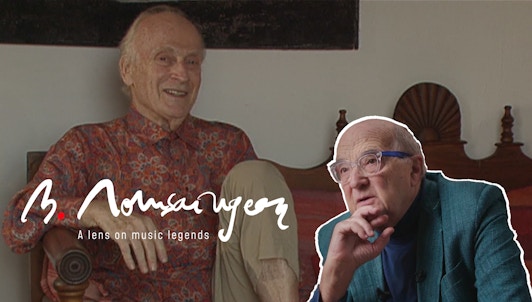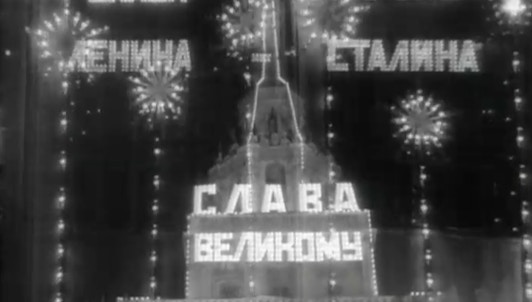Probably one of the most exciting documentaries produced this year: a four hours long film by Bruno Monsaingeon, featuring conversations with one of the most iconic conductors of the Soviet Union and now Russia, Gennady Rozhdestvensky.
Born in Moscow in 1931, Gennady Rozhdestvensky is a charismatic and exceptionally gifted conductor. He made his debuts as conductor at the age of 21. After conducting at the Bolshoi Theatre and the Moscow Radio Orchestra, Rozhdestvensky started an international career. He has conducted the greatest orchestras of Stockholm, Vienna and London. Deeply committed to contemporary music, he was a close friend of such great composers as Shostakovich and Schnittke. He also got to know Prokofiev towards the end of the latter’s life, posthumously championing Prokofiev’s later works, which had been banned until then.
Conversations with Gennady Rozhdestvensky is a film directed by outstanding music filmmaker Bruno Monsaingeon. Monsaingeon has devoted a large part of his life to the making of musical films dedicated to the greatest artists of our time, including Yehudi Menuhin, Nadia Boulanger, Glenn Gould, Sviatoslav Richter, David Oistrakh and many others. His films are deeply atmospheric as he is interested in the actual person behind the artist, his soul.
These conversations between Rozhdestvensky and Monsaingeon were recorded in 1999, 2002, 2003 and 2015 in Moscow, Nikolina Gora and Paris. Through these conversations, Rozhdestvensky enlightens his childhood, his musical career, and tells us how musical life was like back in the days of the Soviet Union. Indeed, he was to an inevitable extent involved in an administrative type of organization, and knew a lot about the mysteries of the Soviet Union. In the course of the discussions, an intimate atmosphere takes hold as the venerable conductor confides about his life. He is questioned in the form of an autobiographical account rather than as a historian.
Rozhdestvensky is a highly colourful character. Indeed, he is able to extract from any given situation, however dramatic, its potential for comedy. He is capable of seeing the system in a way that is personal, comprehensive and detailed. Rozhdestvensky is definitely a natural born storyteller. He narrates many humorous anecdotes: when he became an intern at the Bolshoi, Nikolai Semionovich Golovanov, who was the head the jury, told him: "We've chosen you, so, get to work! One thing though, don't hope to conduct here one day. It will never happen." Rozhdestvensky surely proved him wrong... and became principal conductor of the Bolshoi Theatre in 1965 and General Artistic Director in 2000!
Enhanced with exclusive, never-before-seen commentary by the director.




